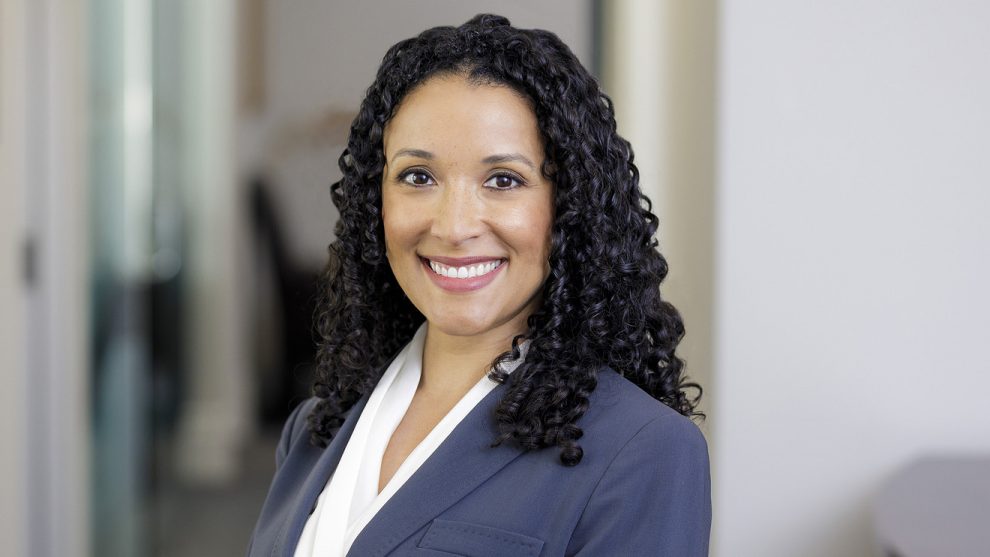
Rachel Robasciotti founded her wealth management firm, Robasciotti & Philipson, 16 years ago. She describes the company, established after she had spent five years in the financial services industry, as a “a bridge between financial markets and social justice activism”: a place where the principals are deeply committed to helping clients to do well by doing good, in ways that go beyond the usual lip service to sustainability investing.
Some of that work has recently included a series of essays on social justice investing, and in particular on race in finance. MarketWatch spoke with Robasciotti for some deeper insights into why racial justice is an integral part of the subject of money, and what investors should think about when they try to deploy their funds mindfully.
The interview below has been edited for length and clarity.
MarketWatch: How did you first come to the idea of justice investing?
Rachel Robasciotti: Social justice investing really came first. It was obvious that it could never happen without a focus on racial justice. Those areas of focus came directly from our work with our clients and our work with the communities that we all came from. We’re a really diverse team with nontraditional backgrounds. We all share a commitment to making a difference within public markets specifically. We work within the structure that exists. When you come from outside the traditional power structure, you inherently carry a different perspective. I grew up in a segregated community in a rural part of Northern California. Men don’t have the opportunity to be present in many Black families. We were a mostly female family in a very segregated community. There was a recreational lake in my community that I still have never been to because that was a place Black people weren’t allowed. When I and other people start looking at making an impact through investing, social justice is inherently part of it, and we know that we happen to be here because of benefits we happened to have that maybe others didn’t. And yet we come from a different place that many people in our industry do. Our clients have primarily been women and people of color and LBGTQ people…people with similar values.
In 2008-2009, when the language around ESG investing started to come out, we weren’t happy with it. So we started creating portfolios that directly impacted the systemic inequities that public markets create. It was so incredibly different that our portfolio grew quite quickly. It started with the people and it ended up impacting the investing. But now we understand we can’t make large-scale change without building solidarity within the investing world. We know we can’t just have our own investments, we have to have campaigns that educate other investors to bring about broad systemic change.
MarketWatch: Can you talk a little bit about the themes and ideas behind the screens that you use for determining which companies to avoid investing in? Likely a lot of people recognize things like for-profit prisons as problematic, but other issues might not be quite as familiar.
“ ‘Literally, Wall Street was built by slaves. People aren’t familiar with that. It helps challenge the narrative that racial justice has nothing to do with finance. It has everything to do with finance!’ ”
Robasciotti: Our core piece of social justice is racial justice. Most people know the country was built on slave labor, but they don’t know that literally the first time there was something that might be considered a mortgage, the first bond market, it was on the sale of human beings. Literally, Wall Street was built by slaves. People aren’t familiar with that. It helps challenge the narrative that racial justice has nothing to do with finance. It has everything to do with finance! When we took a look at racial justice, how our country was formed and how we continue to build wealth, when we decided to publish our Racial Justice Exclusion list, that is the entire portion of our portfolio. Whenever an investment manger publishes their exclusion list, they are giving away their intellectual property. We made a conscious decision to do that because we knew we had to enable others to follow a similar path. We’re really OK with not profiting off it.
When we were building the Racial Justice Exclusion List list to share with the public, we were following the lead of organizations that are embedded in impacted communities, specifically the Black community, but others as well, like the Movement for Black Lives, Poor People’s Campaign, Color of Change, and Race Forward. Organizations specifically working on these issues. They let us know that the system that investors were funding actually detract from the goals of their movement: prison involvement, money bail, surveillance, and immigrant detention, among others. They asked us to specifically focus on those issues. There is a continuing discussion about facial recognition which we haven’t committed to yet. They also asked us to cover for-profit colleges and, in international solidarity, we’ve also excluded companies that contract labor from occupied territories, specifically the West Bank. That was done specifically because it mirrors the Jim Crow “separate and unequal” situation in the United States.
MarketWatch: After the killing of George Floyd, I felt a strong sense that the financial services industry had been doing some work, even if it was just marketing and greenwashing, to at least address issues of gender rights, LGBTQ issues — but not black issues. I discovered that there is an ETF NACP, -0.14% sponsored by the NAACP, and I think that was a surprise to a lot of people in the investing world, even though we’re all aware of the gender-branded ETFs, and so on. I’m curious if you see things the same way, and if so, why you think it is that racial issues aren’t recognized in the same way.
Robasciotti: I believe very strongly that we can’t have Black people in this country without having white people. We used to deal with overt instances, of open systemic racism. You know, like, “you’re less of a human being.” But people haven’t been examining the systems that were long ago put into place by racists. Their great-grandchildren are still operating under those systems. What ended up enduring from those systems is that racism has been defined in terms of blackness rather than in terms of whiteness. Never was there a public acknowledgment of whiteness. We don’t have to have white supremacists who blow up churches, it’s just as damaging to have white as the default.
“ ‘We’ve been able to talk about gender issues but there is still this overriding prohibition over mentioning race. In financial services, it is often difficult for emerging managers of color to access the same opportunities as other established managers.’ ”
MarketWatch: What do you mean by that?
So if I say to you, imagine a surgeon. If you’ve done a lot of thinking about gender issues, you may imagine a woman. But even so, you’re probably not imagining a Black woman. If you kind of think about the default, it’s always being white, and everything that is not, is an aberration. That has been baked into our laws and our financial system which is why our industry is so white (laughs.) Money is power, and there is a need to not change the power structure. It’s also been put in place not to talk about whiteness. We’ve been able to talk about gender issues but there is still this overriding prohibition over mentioning race. In financial services, it is often difficult for emerging managers of color to access the same opportunities as other established managers. Industry standards for evaluating asset managers often disproportionately favor well-established managers who mostly come from traditional backgrounds and have personal or family wealth.
Related:A first-of-its-kind racial empowerment ETF is ‘flying under the radar.’ Maybe it shouldn’t.
MarketWatch: I’d like to ask you a little bit about the idea of passive investing. In a blog post, you wrote that “owning an index fund to avoid stock picking and ‘take the emotion out’ of investing isn’t a neutral stance.” Is that something readers should take away – that when it comes to deploying your money, there is no such thing as passive investing?
Robasciotti: That is what we’re saying. In the current environment, what has been defined as passive doesn’t speak to morality at all. Honestly, in corporate ethics, we’re afraid of conversations about morality. We have made passive investments that don’t look at morality, so we end up giving companies a lease. Here’s a real interesting question: who’s building the indexes? If Black people were building the indexes, I can almost guarantee private prisons wouldn’t be in there. As Cornell West said, we tried Black faces in high places. But I do think that our answers are going to have to come from more representation in things like the indexes and listening to people who are most impacted by the problems.
Related:Do well by doing good with this fund that supports freedom and human rights
MarketWatch: Can you talk a little bit about the idea of trying to bring about social justice with money that goes beyond just “not investing in x?”
Robasciotti: Exclusionary screening for racial justice is like putting a tourniquet on a bleeding limb. We have to stop the bleeding first but then we have to nourish the whole body. One of the best ways to invest in Black communities is in municipal bonds. It’s a way of injecting money directly into those communities. We’ve built the strategy and the investment case for this kind of inclusionary investment and we’ll be sharing it with the public in a couple of weeks.
MarketWatch: Have the events of 2020 changed anything about your client behavior?
Robasciotti: It hasn’t changed our existing client behavior. Our clients were always committed. But what it really changed was the amount of interest. It’s like the dial going from 1…2…3…to 10 for interest in what we’re doing.
MarketWatch: And what about you, how are you feeling? Are you hopeful that more people will start to invest consciously, that companies will respond to the pressure from investors, that this kind of work will make a difference?
Robasciotti: I feel more hopeful than I’ve ever been about the possibilities for racial justice in this country. As long as whiteness, and what was happening in our communities, wasn’t being talked about, as long as those things weren’t in the public conversation, nothing was going to be changed. I feel like the country has finally faced its legacy.
Also see:ETFs can bring fairness to finance, says LGBTQ+ pioneer Barney Frank












